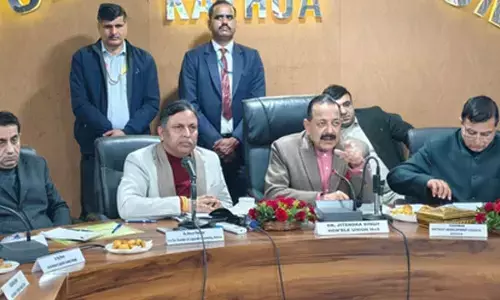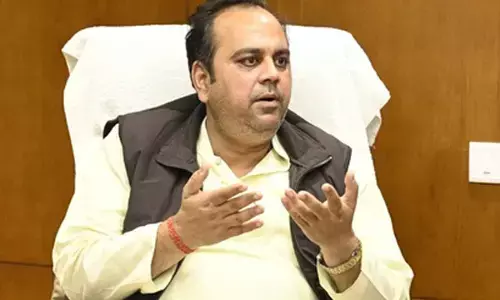Reliance General Insurance takes legal opinion on Hinduja's plan to extinguish ESOPs of RCAP subsidiaries
Share :

Hinduja-led IIHL -- the successful bidder for Reliance Capital under insolvency proceedings -- cannot extinguish the employees stock options (ESOPs) and other incentive schemes for the Reliance General Insurance Company (RGIC) employees
New Delhi : Hinduja-led IIHL -- the successful bidder for Reliance Capital under insolvency proceedings -- cannot extinguish the employees stock options (ESOPs) and other incentive schemes for the Reliance General Insurance Company (RGIC) employees, a subsidiary of Reliance Capital, according to legal opinion taken by Reliance General Insurance.
The legal opinion was necessitated as IIHL in its resolution plan for Reliance Capital has sought to extinguish all employees stock option plans, phantom stocks or similar incentive schemes of Reliance Capital and its subsidiaries, including RGIC, so that no additional cost is incurred after the takeover. Reliance General Insurance has issued ESOPs to its employees.
Khaitan & Co in its legal opinion submitted to the RGIC has opined that under IBC, treatment of assets and liabilities of subsidiary companies are not permitted to be prescribed under a resolution plan for the holding company.
The IBC recognises the principle of 'separate legal entity', which means that once incorporated, the company becomes a separate legal person and has a personality that is distinct from the person responsible for its constitution. The legal firm was engaged by RGIC CEO Rakesh Jain. The legal opinion, reviewed by PTI, states that since benefits in the form of the ESOPs, phantom stocks, other incentive schemes, statutory benefits such as gratuity, provident fund etc, form part of the liabilities of RGIC towards its employees, the same may not be dealt with or extinguished by IIHL in its resolution plan for Reliance Capital.
To support their opinion on the matter, Khaitan & Co has quoted several judgments of the Supreme Court and NCLT, which have held that even in a group company structure, both the holding and subsidiary companies continue to retain their status as separate legal entities, notwithstanding that a substantial part of the subsidiary's capital is held by the holding company.
The Khaitan & Co has noted that the resolution plan submitted by the IIHL was under option-1, i.e., submission of resolution plan for Reliance Capital as a going concern. Quoting the Supreme Court judgement in the case of Vodafone International Holdings BV versus Union of India and others, the Khaitan & Co has stated that the top court held that the "legal relationship between a holding company and Wholly Owned Subsidiary (WOS) is that they are two distinct legal persons and the holding company does not own the assets of the subsidiary and, in law, the management of the business of the subsidiary also vests in its Board of Directors.
In fact, the insolvency of the holding company per se does not directly affects its subsidiary." A similar conclusion was reached in the case of Bhavik Bhimjyani versus Uday Vinodchandra Shah, RP of Neelkanth Township & Construction Pvt Ltd & others, wherein NCLAT emphasised the separation of assets of subsidiary companies from those of the corporate debtor.
Furthermore, the Supreme Court in the matter of Municipal Corporation of Greater Mumbai (MCGM) versus Abhilash Lal and others held that a resolution plan should exclusively deal with the "properties and assets of a corporate debtor and not of third parties". Further, once a resolution plan is approved for the corporate debtor then it is binding on the stakeholders like creditors of the corporate debtor, guarantors, and government authorities who have been involved in the resolution plan. However, the ambit of Section 31(1) of the IBC does not appear to suggest that once a resolution plan is approved for a holding company, it is also binding on all the employees, creditors, etc, of its subsidiaries.
















